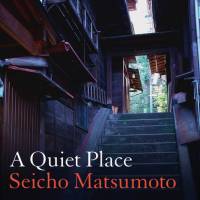Celebrated crime writer Seicho Matsumoto penned hundreds of works in his lifetime but so far only a handful have made it into English, which means the publication of a new novel should be cause for celebration.
A Quiet Place, by Seicho Matsumoto, Translated by Louise Heal Kawai.
224 pages
Bitter Lemon Press, Fiction.
"A Quiet Place" centers on Asai, a civil servant who is good at his job and well-versed in the ways political Japan interacts with corporate Japan. In fact, he is so immersed in his career that when he receives a phone call telling him his wife has died from a heart attack, his first thought is: What kind of impression will this "embarrassment" have on the Minister?
But slowly, over the course of several weeks, it occurs to him that a woman in her 30s dying of a heart attack in a neighborhood she had no business being in — a neighborhood with nothing to recommended it, save a few love hotels — is a mite suspicious. Though his investigations are clumsy, he eventually finds a suspect and confronts him. At this point, three-quarters into the novel, the story really picks up, but it takes a long time to get there.
The faults of "A Quiet Place" lie with Matsumoto rather than the translator. The author is renowned for his explorations of the darker side of postwar Japanese society, a particularly good example being the 1958 novel "Ten to Sen" ("Points and Lines"), but for a writer so prolific, not every book can be a winner. The slow pace and anaemic prose of "A Quiet Place" — where key details are repeated over and over to the point of irritation — make it a strange choice for exposing the award-winning author to an international audience.

















With your current subscription plan you can comment on stories. However, before writing your first comment, please create a display name in the Profile section of your subscriber account page.